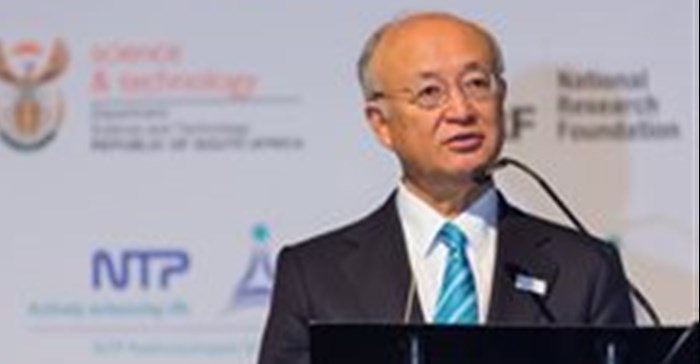Accidents undermine confidence
“Every care must be taken to ensure that the use of radioactive materials poses no undue hazard to the public or environment,” said Yukiya Amano, director general of the International Atomic Energy Agency (IAEA), the global centre for cooperation in nuclear applications, energy, science and technology.

“Accidents involving nuclear technology or materials can be harmful to human health or the environment and can also undermine public confidence in nuclear science and applications, as was the case with the Fukushima Daiichi nuclear disaster. There was a key lesson for everyone involved, safety cannot be taken for granted,” he said.
This is of particular interest in South Africa, where the government’s integrated electricity resource plan (IRP) for 2010-2030 includes a framework for the generation of 9,6MW in nuclear energy, said Zizamele Mbambo, deputy director general for nuclear energy in the department of energy (DoE).
Nuclear energy is increasingly recognised as a clean technology that can make huge inroads into South Africa’s energy demands. “There are challenges that we are facing related to the negative public perceptions that require us to demystify nuclear,” he said.
This sentiment was echoed by Renate Czarwinski, IRPA president, in her welcome address. “We need to be proactive in recognising the public needs and demands. A precondition for a successful explanation and discussion of the system of [radiation] protection with the public and stakeholders is trust and knowledge,” she said.
Educating the public about the importance of nuclear science and technology is one of the ambitions of the Southern African Radiation Protection Association (SARPA), the organisation that co-hosts the congress alongside the South African Radiation Protection Society (SARPS).
“Our responsibility as radiation protection professionals, in addition to the actual radiation protection, is to make sure that civil society understands nuclear technology,” said Shane Motlhalogo, SARPA executive board member.
The congress brings together close on 900 delegates from 72 countries at the Cape Town International Conference Centre (CTICC) from 9 to 13 May.